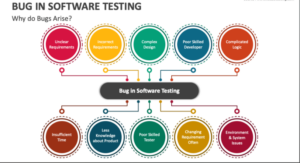Introduction
As the technology industry continues to expand, the demand for software quality assurance professionals is growing steadily. More companies recognize the importance of testing software thoroughly before releasing it to the public. As a result, the demand for skilled QA testers, especially those capable of working remotely, has increased.
Remote QA jobs provide numerous advantages, including flexibility, diverse job opportunities, and the ability to collaborate with global teams. Whether you’re just starting your journey in QA testing or seeking to advance your career, understanding how to position yourself as a strong candidate in the remote job market is essential.
The Growing Demand for Remote QA Jobs
The rise of cloud computing, agile methodologies, and the need for continuous integration and delivery (CI/CD) have accelerated the demand for QA testers who can work remotely. Businesses are seeking professionals who can maintain high software quality standards while working from home.
A survey by Statista in 2024 indicated that 45% of software development teams now operate remotely, with QA testers being among the most sought-after roles. With the continued trend toward distributed workforces, remote QA jobs are no longer a niche offering they are becoming mainstream.
Skills You Need to Succeed as a Remote QA Tester
Before diving into how to find remote QA jobs, it’s essential to understand the skills that hiring managers are looking for. A combination of technical and soft skills will set you apart from the competition.
Key Technical Skills
Proficiency in Testing Tools: Familiarity with industry-standard testing tools such as Selenium, JIRA, Jenkins, and TestRail is crucial. Automation testing is in high demand, and testers who can create automated test scripts using tools like Selenium WebDriver will have a competitive edge.
Understanding of Different Testing Types: You should have expertise in various forms of testing, such as manual testing, automated testing, regression testing, and performance testing. A solid foundation in software development life cycle (SDLC) and test-driven development (TDD) methodologies is also beneficial.
Programming Skills: While not always required, knowing how to code in languages like Java, Python, or JavaScript can greatly enhance your career prospects. Automation testing roles often require basic coding knowledge to write and debug test scripts.
Knowledge of Version Control Systems: Tools like Git are essential for remote teams, enabling QA testers to collaborate on software projects effectively.
Familiarity with Agile and DevOps: Many companies operate using Agile or DevOps methodologies, so understanding how QA fits into these workflows is a must. In agile environments, QA testers need to adapt quickly and work closely with development teams.
Soft Skills for Remote Work
Communication: Remote work requires excellent communication skills to ensure that team members, project managers, and developers are all aligned. Regular reporting and proactive engagement are key to success.
Time Management: Remote QA testers need to manage their schedules effectively, meet deadlines, and stay productive without the oversight of a physical office environment.
Problem-Solving: As a remote tester, you may face challenges that require independent troubleshooting. The ability to diagnose and resolve issues quickly is invaluable.
Importance of Certifications and Training
While having the right skills is crucial, obtaining a certification in QA testing can significantly boost your employability. Certifications validate your expertise and show employers that you are serious about your profession.
Benefits of QA Testing Training
- Stay Updated on Industry Trends: The QA field is constantly evolving with new tools and methodologies. Taking structured courses ensures you stay updated with the latest trends.
- Hands-On Experience: High-quality training programs provide practical experience that helps you apply theoretical knowledge in real-world scenarios.
- Boost Your Resume: Certifications enhance your resume and make you stand out to potential employers.
H2K Infosys: Your Gateway to Quality Assurance Jobs
At H2K Infosys, we offer comprehensive Software testing boot camp with job guarantee designed to provide you with the knowledge and skills needed to excel in the industry. Our Quality Assurance software testing courses cover everything from the basics of manual testing to advanced automation testing techniques.
Our program includes:
- Live instructor-led training
- Hands-on projects
- Access to real-world testing environments
- Assistance with resume preparation and job placement
By completing our QA testing training, you’ll be well-prepared to apply for remote quality assurance positions.
ind your profile appealing, they will send you remote quality assurance job invites.
Where to Find Remote Quality Assurance Jobs
Now that you know the skills and training required, where do you find these remote jobs? Let’s explore the top platforms and strategies.
Freelance Platforms
Freelance platforms are an excellent starting point for finding remote QA jobs. Websites like Upwork, Freelancer, and Toptal often have listings for freelance QA testers. These platforms allow you to build a portfolio and gain experience by working on short-term projects.
- Pros: Flexibility, variety of projects, ability to set your own rates.
- Cons: High competition, projects may be temporary.
Job Boards
Job board aggregators dedicated to remote work, such as We Work Remotely, FlexJobs, and Remote.co, frequently feature openings for QA testers. You can filter your search by specific job titles such as QA Engineer QA Tester or Automation Tester.
- Pros: Regular updates, extensive job listings, some offer full-time opportunities.
- Cons: Requires consistent checking and application effort.
Networking and Professional Communities
Networking can significantly increase your chances of landing a remote QA job. Joining online communities like Stack Overflow, LinkedIn groups, or QA-focused forums allows you to connect with other professionals, get insights into available opportunities, and even receive job referrals.
- Pros: Direct connections, industry insights, possibility for referrals.
- Cons: May take time to build relationships before seeing job opportunities.
Tips for Applying to Remote QA Jobs
Landing a remote QA job requires more than just submitting your resume. Here are some tips to help you stand out:
Crafting an Effective Resume
Your resume should highlight your technical skills, relevant certifications, and experience in QA testing. Tailor your resume to each job application by emphasizing the specific skills mentioned in the job listing. Make sure to include any experience with remote work or collaboration tools like Slack, Zoom, or Trello.
Writing a Strong Cover Letter
In your cover letter, focus on your ability to work independently and communicate effectively in a remote setting. Employers want to know that you can stay productive without direct supervision. Provide examples of how you’ve successfully contributed to remote projects or teams in the past.
Challenges and How to Overcome Them
While remote QA jobs offer many advantages, they also come with unique challenges. Here are some of the most common hurdles and tips to overcome them:
- Isolation: Working remotely can feel isolating at times. Combat this by staying active in professional communities and maintaining regular communication with your team.
- Time Zone Differences: If you’re working with a global team, time zone differences can be a challenge. Use tools like World Time Buddy to keep track of overlapping hours and schedule meetings accordingly.
- Staying Organized: Without the structure of an office, staying organized can be tough. Utilize project management tools like Trello or JIRA to keep track of your tasks and deadlines.
Key Takeaways
- Remote QA jobs are in high demand, offering flexibility and career growth.
- To succeed, focus on building both technical and soft skills such as communication and time management.
- Certifications, like those offered through H2K Infosys’ Quality Assurance tester training, can significantly improve your job prospects.
- Search for remote QA jobs on freelance platforms, job boards, and through professional networking communities.
- Tailor your resume and cover letter to each job, emphasizing your ability to work independently and remotely.
Call to Action: Enroll in H2K Infosys’ QA Testing Training Program
Are you ready to take your QA career to the next level? H2K Infosys offers top-rated QA testing training designed to equip you with the skills and knowledge needed to land remote quality assurance jobs. Our Quality Assurance software testing courses cover both manual and automation testing, providing hands-on experience and real-world projects.
Don’t wait to start your journey to becoming a successful QA professional. Enroll in our QA testing Demo classes today and take the first step towards a flexible and rewarding career in remote software quality assurance!






























